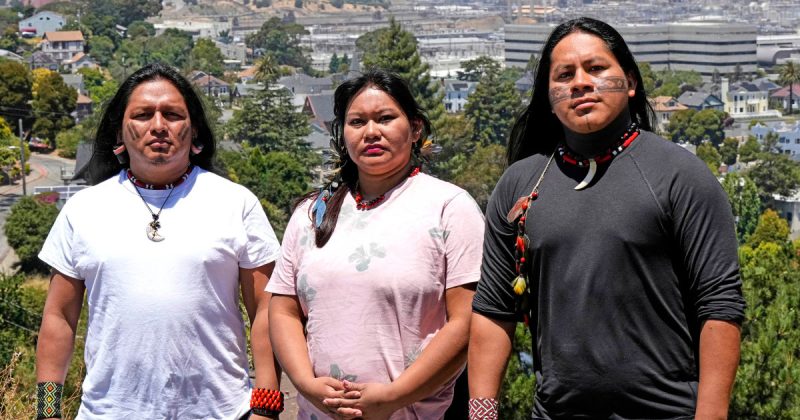
An oil tanker, a stark symbol of California’s reliance on Amazonian crude, sat docked at Chevron’s Richmond refinery. Simultaneously, Indigenous leaders from Ecuador’s Amazon, braving the chilly Bay Area winds, paddled kayaks, their presence a powerful protest against the oil expansion threatening their ancestral lands.
Their urgent plea for change resonated, prompting the California Senate to introduce a resolution calling for an investigation into the state’s role in importing this oil. The timing is critical, coinciding with Ecuador’s plan to auction off fourteen new oil blocks, covering over two million hectares of rainforest, much of it Indigenous territory, in its 2026 “Sur Oriente” bidding round.
This action directly contradicts the results of a national Ecuadorian referendum that voted to leave oil permanently underground in Yasuni National Park. The Indigenous leaders argue that the planned expansion violates the spirit of this referendum, a decision made by the Ecuadorian people themselves to protect their environment and heritage.
The situation in Ecuador mirrors a similar trend in Brazil, another Amazonian nation which recently auctioned off several oil sites despite widespread environmental and Indigenous protests. These parallel actions highlight a concerning pattern of prioritizing resource extraction over environmental protection and Indigenous rights.
Juan Bay, president of the Waorani people, emphasized the importance of their visit to California, stating that it was crucial to amplify their voices and bring attention to their struggle. He directly urged Californians to reconsider the source of their oil, emphasizing that much of it originates from Waorani territory.
The delegation’s visit included a symbolic kayaking trip near the Chevron refinery, providing a powerful visual representation of the connection between the distant Amazon and the Californian coastline. For Nadino Calapucha, a spokesperson for the Kichwa Pakkiru people, the experience felt like a gesture of solidarity from nature itself, highlighting the shared struggle for environmental protection between the two regions.
California’s significant role as the world’s largest consumer of Amazonian oil, coupled with Ecuador’s position as the region’s top onshore crude producer, underscores the urgency of this issue. Bay referenced a March 2025 ruling by the Inter-American Court of Human Rights which found Ecuador had violated the rights of Indigenous groups by allowing oil operations in Block 43, demanding a halt to extraction in protected areas and upholding the Yasuni National Park drilling ban.
State Senator Josh Becker, who introduced the resolution, praised the Indigenous leaders for their courageous defense of their land and the global climate. He highlighted the refinery’s long history of controversy, and the millions of barrels of Amazonian crude it has processed, raising concerns about pollution, public health, and environmental damage.
Amazon Watch, an Oakland-based non-profit, released a report detailing the climate, legal, and financial risks associated with oil operations in Indigenous territories without their consent. Kevin Koenig, the organization’s director, described California’s reliance on Amazonian crude as an “addiction.” He stressed California’s responsibility and complicity in driving demand for this oil and the resulting impact on Indigenous people, biodiversity, and the climate.
Koenig emphasized the interconnectedness of the Amazon and California, noting that the rainforest plays a vital role in climate regulation and rainfall patterns affecting California. He warned that continued imports of Amazonian crude contribute to deforestation, increasing California’s vulnerability to drought and wildfires. He pointed out that the environmental and public health consequences of oil drilling extend beyond South America, affecting communities in California through contamination and health issues.
The resolution commends the Ecuadorian Indigenous communities for their struggle and marks the first time California will formally examine the link between its energy consumption and the Amazon’s deforestation and cultural loss. With a vote expected in the coming weeks, this resolution represents a significant step towards addressing California’s complex relationship with Amazonian oil and its impact on Indigenous rights and the global environment.










